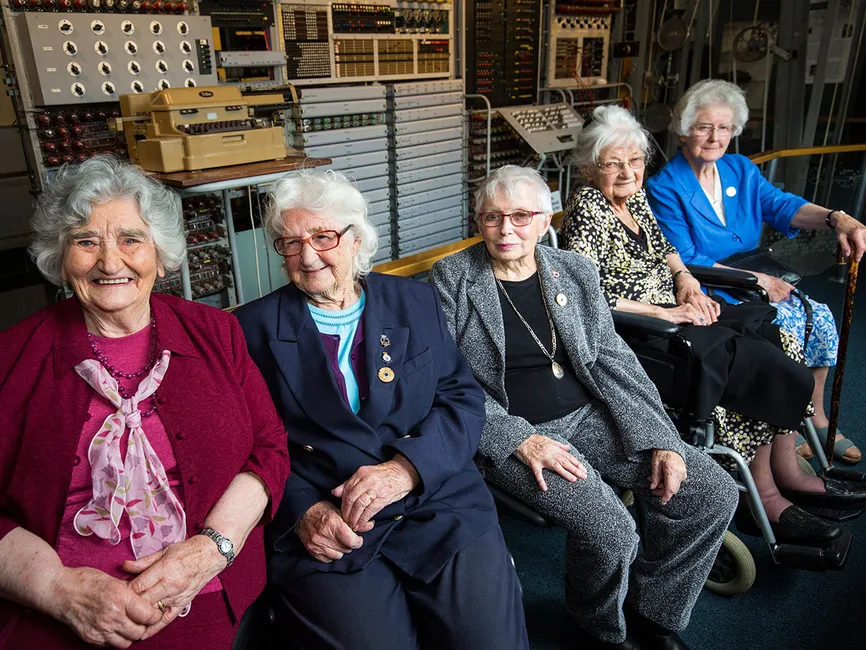Earlier in my working life, I often caught the train from Euston station in London, to Northampton. Every now and then, an older passenger would lean over to tell me (as we went through Bletchley) that ‘a lot of things went on there during the war, you know.’ This was always said in a hushed, respectful tone.
My fellow passengers were right. Bletchley was a vital centre of code breaking for the Allies in World War 2.
Today it’s an interesting museum outing, and as I walked around the huts and read various dedications to the brilliant individuals who worked there, I could only imagine how tough their working lives had been.
There were three continuous shifts of eight hours, six-days a week. People came in from their billets in all weathers. It was clear that the coding huts were often stifling or freezing. I felt claustrophobic at the low ceilings and was surprised by the spartan, airless rooms. These were not swish offices. Workers often sat for hours near the endless loud clack of machines. The food sounded awful. Coal (for heating) was strictly rationed at Bletchley as it was everywhere.
Since I can’t manage a sudoku puzzle, I was full of admiration for the abilities and stamina of these folk, but also for their dedication to work that demanded absolute secrecy. In the Bletchley years, workers were routinely reminded that they could not talk freely to their own colleagues.
One sign had bold headings such as DO NOT TALK AT MEALS. DO NOT TALK IN THE TRANSPORT. DO NOT TALK IN YOUR BILLET and probably the hardest of all, DO NOT TALK BY YOUR FIRESIDE.
Why couldn’t you tell your family by the fireside? The sign went on to explain that ‘’if one day invasion comes, as it perfectly well may, Nazi brutality might stop at nothing to wring from those you care for, secrets that you would give anything then, to have saved them from knowing. Their only safety lies in utter ignorance of your work.”
Imagine knowing that your work had been significantly responsible for defeating the enemy and then having to keep it to yourself. But the code of conduct was clear.
“There is nothing to be gained by chatter, but the satisfaction of idle vanity, or idle curiosity; there is everything to be lost – the very existence of our work here, the lives of others, even the war itself.’
At Bletchley, around three quarters of the code breakers were women. I wondered about their lives after the war when they returned to civilian life, unable to break their duty under the Official Secrets Act to pitch their intelligence to a post war employer. No-one could discuss their war effort for decades and many would have taken their secrets to the grave.
I think everyone should take a tour of Bletchley if they can. It’s an inspiring reminder that people came together from all walks of life to solve extraordinarily complex problems. They worked in a trying environment and put a higher goal above their daily deprivations. And it reminds us, in this age of over-sharing and virtue signalling, that human beings are capable of being discreet, or to use a very English expression, keeping mum.

loved the article: how much pain in life could be reduced if the concept of ‘idle vanity…idle curiosity’ were fully owned.